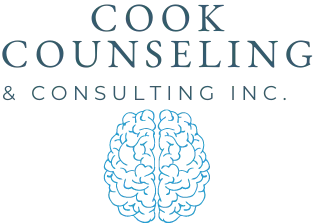Are you suffering from severe chest pain and shortness of breath? You might be suffering from a life-threatening medical condition called Broken Heart Syndrome. Clinically known as Takotsubo, Cardiomyopathy can be triggered because of emotional trauma such as a death of a loved one or a miscarriage, or a divorce. Around 2% of people who visit a healthcare provider for a heart attack are diagnosed with Broken Heart Syndrome. The Journal of the American Heart Association published a study according to which approximately 135,463 cases of Takotsubo Cardiomyopathy were reported between 2006 and 2017, of which 88.3% were women. Here is everything you need to know about broken heart syndrome.
What Is Broken Heart Syndrome?
Named after the octopus trap, Broken Heart Syndrome is the weakening of the heart’s main pumping chamber and left ventricle due to severe physical or emotional stress. Because this condition is stress-induced and the heart’s chamber looks like a Tako-Tsubo pot, it is also known as Stress Cardiomyopathy, Apical Cardiomyopathy, Takotsubo Cardiomyopathy, and Gebrochenes-Herz Syndrome. There are four types of Broken Heart Syndrome:
- Focal: This is the rarest type of Broken Heart Syndrome. The affected area bulges out, and the opposite side of the heart curves inwards.
- Mid-Ventricular: Affecting the middle section of the ventricles, the mid-ventricular looks like a belt or ring around the heart. Whereas the lower and upper portions of the heart function normally.
- Basal: Like mid-ventricular, basal appears like a belt or ring. However, it affects the upper portion of the heart and makes up 2% of the cases.
- Apical: Apical affects the heart’s lower half and makes up 80% of Broken Heart Syndrome cases.
Causes of Broken Heart Syndrome
While medical professionals don’t fully understand the factors that can cause Broken Heart Syndrome, you are at a higher risk if you have recently experienced a traumatic or stressful event, are older than 50 years of age, are an AFAB or female, or suffer from a neurological or psychological disorder. Some common causes are as follows:
- Physical Stressors: Stroke, seizures, high fever, low blood sugar, significant bleeding, and difficulty breathing (emphysema or asthma attack)
- Emotional Stressors: Surprise, extreme anger, shock, grief, and fear.
Symptoms of Broken Heart Syndrome
The symptoms of broken heart syndrome are similar to the ones of a heart attack. Listed below are the signs that you are dealing with the condition:
- Low blood pressure
- Irregular heartbeats
- Severe chest pain – similar to angina
- Weakening of the left ventricle
- Shortness of breath
- Fainting (Syncope)
- Heart palpitations
- Diaphoresis (Sweating)
Broken Heart Syndrome | Management and Treatment
Broken Heart Syndrome can be diagnosed using medical procedures like an Electrocardiogram or Coronary Angiography. While there is no cure for it, most people recover by taking medications such as ACE (angiotensin-converting enzyme), Aspirin, and Diuretics.
Final Thoughts
One thing is for sure; it isn’t only love that can break your heart. Takotsubo Cardiomyopathy, commonly known as Broken Heart Syndrome, is a medical condition that occurs if a person has been through a traumatic incident or extreme stress. Thus, learning stress management and applying relaxing techniques such as lighting scented candles, taking long, warm baths, practicing mindfulness, yoga, eating healthy, exercising, and getting sufficient hours of sleep are some of the best ways to preemptively beat the condition.
References
Journal of American Heart Association. (2021). Sex‐ and Age‐Based Temporal Trends in Takotsubo Syndrome Incidence in the United States. Retrieved from Journal of American Heart Association (JAHA)
Mayo Clinic. (2022). Electrocardiogram (ECG or EKG). Retrieved from Mayo Clinic: https://www.mayoclinic.org/tests-procedures/ekg/about/pac-20384983#:~:text=An%20electrocardiogram%20(ECG%20or%20EKG,attached%20computer%20monitor%20or%20printer.
MedlinePlus. (2022). Coronary Angiography. Retrieved from MedlinePlus

